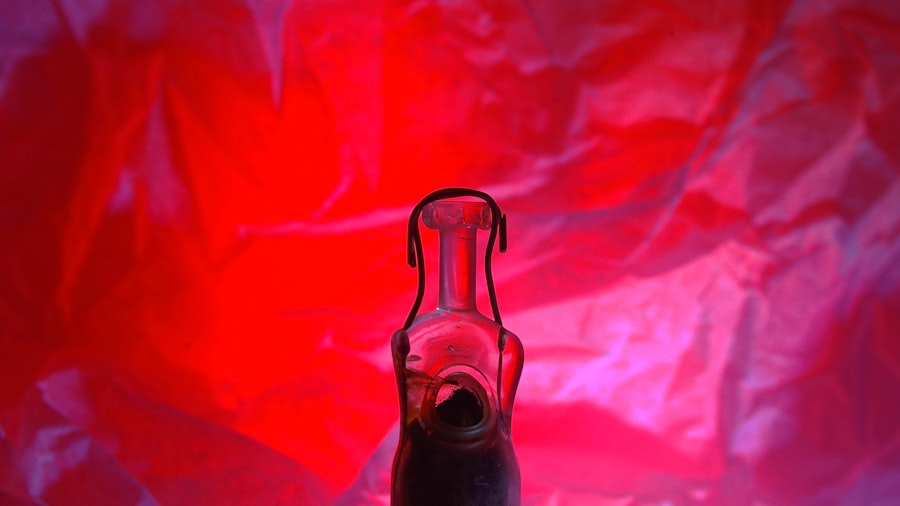In June 2021, a seemingly innocuous press conference turned into a global spectacle when Cristiano Ronaldo, one of the most recognizable athletes in the world, made headlines for his reaction to a couple of Coca-Cola bottles placed in front of him. As he sat down to address the media ahead of Portugal’s Euro 2020 match against Hungary, Ronaldo swiftly removed the two bottles from view and held up a bottle of water instead, declaring, “Agua!” This simple act sparked a whirlwind of discussions about health, sponsorship, and the influence of athletes on public behavior. The incident was not just a momentary lapse in decorum; it ignited a debate about the responsibilities that come with celebrity status and the impact of endorsements on consumer choices.
The controversy surrounding Ronaldo’s actions was amplified by the timing and context. Coca-Cola, a major sponsor of UEFA Euro 2020, had invested heavily in promoting its brand during the tournament. Ronaldo’s gesture was interpreted by many as a direct affront to the beverage giant, especially given that he is a role model for millions around the globe.
The incident raised questions about the intersection of sports, marketing, and personal values, as well as the broader implications for athletes who find themselves in similar situations. As social media platforms erupted with memes and commentary, it became clear that this was more than just a fleeting moment; it was a reflection of changing attitudes towards health and wellness in an age dominated by fast food and sugary drinks.
Key Takeaways
- Ronaldo’s removal of Coca-Cola bottles sparked widespread media attention and debate.
- The incident led to a noticeable dip in Coca-Cola’s stock value and affected its brand image.
- Athletes’ endorsement choices significantly influence public perception and corporate partnerships.
- Social media amplified the controversy through memes and varied public reactions.
- The event highlighted the complex responsibilities of athletes and sponsors in sports marketing.
Ronaldo’s Response to the Situation
In the aftermath of the incident, Ronaldo’s response was measured and reflective. He clarified that his actions were not intended to insult Coca-Cola or its products but were instead motivated by his commitment to promoting a healthy lifestyle. In various interviews following the event, he emphasized the importance of hydration and nutrition, particularly for young athletes who look up to him as a role model.
Ronaldo’s stance resonated with many fans who appreciated his dedication to fitness and well-being, reinforcing his image as an athlete who prioritizes health over commercial interests. Moreover, Ronaldo’s response highlighted the growing trend among athletes to advocate for healthier choices. In an era where obesity rates are climbing and lifestyle diseases are becoming increasingly prevalent, his actions served as a reminder of the influence that sports figures can wield.
By choosing to promote water over sugary beverages, Ronaldo positioned himself as an advocate for wellness, encouraging fans to make better dietary choices. This incident not only showcased his personal beliefs but also underscored the potential for athletes to use their platforms for positive change.
Impact on Coca-Cola’s Image and Stock

The immediate aftermath of Ronaldo’s actions had a noticeable impact on Coca-Cola’s stock price. Following the press conference, shares of the beverage company dropped by approximately 1.6%, translating to a loss of around $4 billion in market capitalization within hours. This decline was emblematic of how quickly public perception can shift in response to high-profile events involving influential figures.
Investors and analysts began scrutinizing Coca-Cola’s marketing strategies and sponsorship deals, questioning whether such partnerships were still effective in an era where consumer preferences are evolving. Coca-Cola’s response to the incident was swift and strategic. The company issued a statement emphasizing its commitment to promoting healthy lifestyles and acknowledged that water is indeed an essential part of hydration.
They also reiterated their support for athletes and their right to express personal beliefs. However, the damage had been done; the incident served as a stark reminder that even established brands can be vulnerable to the actions of individual endorsers. The ripple effects of Ronaldo’s gesture extended beyond immediate financial implications, prompting Coca-Cola to reassess its marketing strategies and consider how best to align its brand with changing consumer values.
Athletes and Endorsement Deals
| Athlete | Sport | Number of Endorsement Deals | Top Endorsement Brand | Annual Endorsement Earnings (in millions) |
|---|---|---|---|---|
| LeBron James | Basketball | 15 | Nike | 55 |
| Serena Williams | Tennis | 10 | Wilson | 30 |
| Cristiano Ronaldo | Soccer | 20 | Nike | 70 |
| Roger Federer | Tennis | 12 | Uniqlo | 40 |
| Simone Biles | Gymnastics | 8 | Athleta | 25 |
The incident involving Ronaldo and Coca-Cola brought to light the complex dynamics of endorsement deals in sports. Athletes are often seen as ambassadors for brands, tasked with promoting products that may not always align with their personal values or beliefs. This tension can create ethical dilemmas for athletes who are increasingly aware of their influence on public behavior.
The expectation that they should endorse products while maintaining authenticity can lead to conflicts that challenge their integrity. Moreover, this situation highlighted the growing trend of athletes taking control of their narratives. Many modern athletes are not just passive endorsers; they actively curate their public personas and choose partnerships that resonate with their values.
For instance, LeBron James has been vocal about social justice issues and has aligned himself with brands that reflect his commitment to community empowerment. Similarly, Serena Williams has championed body positivity and inclusivity through her endorsements. These examples illustrate how athletes are leveraging their platforms to advocate for causes they believe in while navigating the complexities of commercial partnerships.
Social Media Reactions and Memes
The power of social media was on full display following Ronaldo’s press conference, as users around the world took to platforms like Twitter, Instagram, and TikTok to share their reactions. Memes proliferated almost instantly, with many users humorously depicting Ronaldo as a health crusader while others poked fun at Coca-Cola’s predicament. The viral nature of these memes underscored how quickly public sentiment can shift in the digital age, transforming a single moment into a cultural phenomenon.
Social media reactions also reflected broader societal trends regarding health consciousness. Many users praised Ronaldo for promoting water over sugary drinks, viewing his actions as a positive influence on public health discourse. Conversely, some criticized him for being hypocritical given his own commercial partnerships with other brands that may not prioritize health.
This duality in reactions illustrated how complex public perception can be when it comes to celebrity endorsements and personal choices.
Discussion on Athletes and Responsibility

The incident prompted a broader discussion about the responsibilities that come with being a public figure in sports. Athletes like Ronaldo wield significant influence over their fans, particularly younger audiences who may look up to them as role models. This influence carries with it an obligation to promote positive behaviors and values.
As such, athletes must navigate the fine line between personal beliefs and commercial interests while being mindful of their impact on public health. Furthermore, this situation raises questions about accountability in sports marketing. Brands often rely on athletes to enhance their image and reach target demographics; however, when an athlete’s actions contradict brand messaging, it can lead to reputational damage for both parties involved.
This dynamic necessitates open communication between athletes and sponsors regarding shared values and expectations. As consumers become more discerning about brand authenticity, it is crucial for both athletes and companies to align their messaging with genuine commitments to health and wellness.
The Role of Sponsors in Sports
Sponsors play a pivotal role in shaping the landscape of professional sports, providing financial support that enables athletes and teams to thrive. However, this relationship is not without its complexities. Sponsors often seek endorsements from high-profile athletes to enhance their brand visibility and credibility; yet they must also be prepared for the potential fallout when an athlete’s actions diverge from brand messaging.
The Coca-Cola-Ronaldo incident serves as a case study in how sponsorships can be affected by individual behavior. In light of this incident, sponsors may need to reevaluate their strategies for selecting brand ambassadors. The emphasis on aligning with athletes who embody shared values is becoming increasingly important as consumers demand authenticity from brands.
Companies must consider not only an athlete’s marketability but also their ability to represent the brand’s ethos genuinely. This shift could lead to more meaningful partnerships that resonate with consumers on a deeper level while minimizing risks associated with negative publicity.
Lessons Learned from the Incident
The incident involving Cristiano Ronaldo and Coca-Cola offers several valuable lessons for athletes, brands, and consumers alike. For athletes, it underscores the importance of being mindful of their influence and recognizing that their actions can have far-reaching consequences beyond the immediate moment. As role models, they have an opportunity—and perhaps an obligation—to advocate for positive behaviors that align with their personal values.
For brands, this situation highlights the necessity of fostering authentic relationships with endorsers who genuinely represent their mission and values. As consumer preferences evolve towards health-conscious choices, companies must adapt their marketing strategies accordingly while remaining vigilant about potential risks associated with celebrity endorsements. Finally, for consumers, this incident serves as a reminder of the power they hold in shaping brand narratives through social media engagement and public discourse.
As discussions around health and wellness continue to gain traction, individuals are increasingly empowered to hold both athletes and brands accountable for their actions and messaging. In conclusion, the controversy surrounding Ronaldo’s reaction to Coca-Cola during Euro 2020 encapsulates a multifaceted dialogue about health advocacy, athlete responsibility, sponsorship dynamics, and consumer influence in today’s interconnected world.



